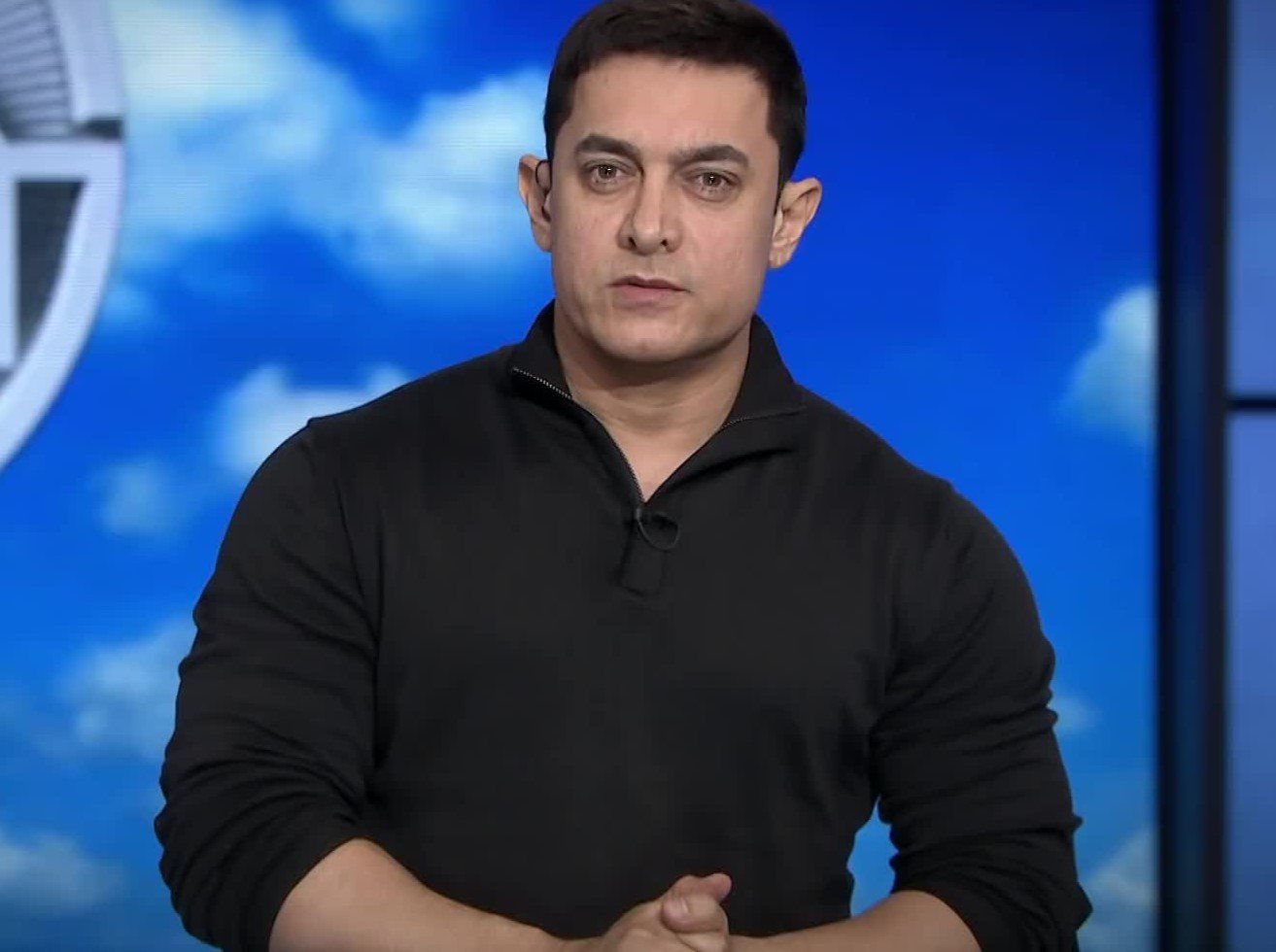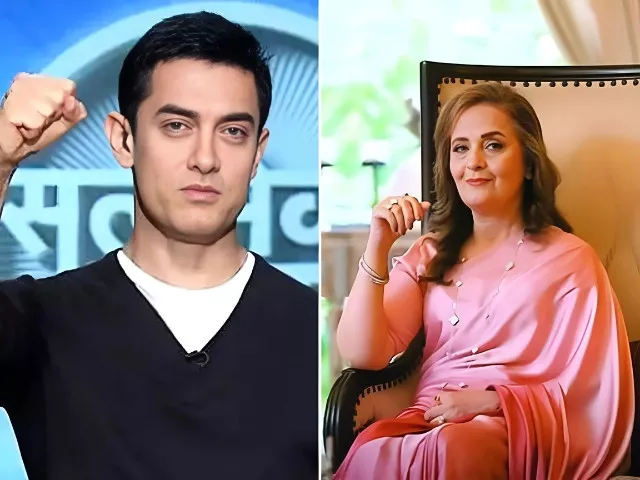In a recent appearance on Ushna Shah's talk show After Hours, actress and host Hina Bayat shared some surprising revelations about her influential talk show Hina Ke Sath, claiming that Bollywood superstar Aamir Khan's famous show Satyamev Jayate drew heavy inspiration from her own work.
Bayat's insightful commentary not only highlighted the impact of her show in Pakistan but also sparked a conversation about how ideas and formats often transcend borders, raising questions about originality and influence in the world of television.
Hina Bayat, a veteran actress recognized for her bravery in addressing taboo subjects, began her career as a host with Uljhan Suljhan, which aimed to address societal issues that were often overlooked. Later, her show evolved into Hina Ke Sath, a groundbreaking platform that focused on mental health and societal problems that were still seen as taboo in many cultures. Bayat's mission was always clear—to help break the silence around these sensitive topics and offer a space where the struggles of real people could be heard and understood.

As Bayat recalled in her interview with Shah, when she first launched Hina Ke Sath, issues like psychological health were rarely discussed openly. "There were many topics that were considered taboo," she said. "My goal was always to address these issues—not to expose people, but to help others understand that these are real people with real problems. If one person's issue is discussed, it might benefit 10 others."
She elaborated on how the show evolved over time, with her tagline always being: "In life, we don't just want to survive; we want to live. To live, you have to do many things." This message resonated with a wide audience, and soon, Hina Ke Sath became a major platform in Pakistan for discussing the previously ignored issues of mental health and societal struggles.
However, Bayat's surprising revelation came when she noticed the striking similarities between her show and Satyamev Jayate, a project that Aamir Khan launched in 2012. Satyamev Jayate, which ran until 2014, focused on social issues and similar topics as Bayat’s show, including health, education, and child abuse. Bayat claims that the format of Khan's show, and even the set design, bore a notable resemblance to Hina Ke Sath.
"When we saw it, everyone said, 'This is our set; this is our content,'" she recalled. "At that time, we didn’t watch shows from India, and they didn’t watch ours. I wouldn’t say they copied, but they were definitely inspired by it."
This claim was further bolstered by the reactions from Bayat’s team. "Many of the individuals who worked on my show were shocked to see the similarities in Satyamev Jayate," she noted. While Bayat did not accuse Khan of outright copying, she made it clear that the format and approach seemed too similar to ignore, even calling the show "inspired" by her own work.
During the interview, the host, Ushna Shah, praised Bayat’s contributions to breaking societal taboos, commenting, "You had a beautiful and strong show, and later, a similar show was made in India, which Aamir Khan also copied a little." Shah then asked, "Can you tell me more about it? What were the similarities?" Bayat reflected on the significant impact of her show in raising awareness about societal issues and how it pushed boundaries in Pakistan's media landscape.
"I’m proud of the work I did, and I am thankful for the platform I had," Bayat said with gratitude. "To be able to bring such vital issues into the public eye is something I will always cherish."
While Bayat did not express any desire for legal action or further conflict, her revelation has undoubtedly sparked debate about originality and intellectual property in television production. Satyamev Jayate went on to become one of India’s most influential TV shows, earning praise for its social messages and widespread reach. Yet, this latest disclosure raises interesting questions about the extent to which ideas in the media world are inspired by or copied from others.
The parallels between Bayat’s pioneering work and Khan’s Satyamev Jayate are undeniable, but whether they were simply coincidental or indicative of a deeper pattern of format borrowing remains a topic of discussion.

IMDb
Regardless of the outcome, Hina Bayat’s legacy in Pakistan remains untarnished, and her role in addressing some of the most difficult topics in society cannot be understated.
As this conversation continues, one thing is clear: Hina Bayat was ahead of her time, pushing for change and creating space for these important issues long before they became mainstream in the media landscape.
While Satyamev Jayate may have garnered more global attention, it’s evident that Bayat's pioneering approach to mental health and societal awareness was a significant influence on both sides of the border.









COMMENTS
Comments are moderated and generally will be posted if they are on-topic and not abusive.
For more information, please see our Comments FAQ